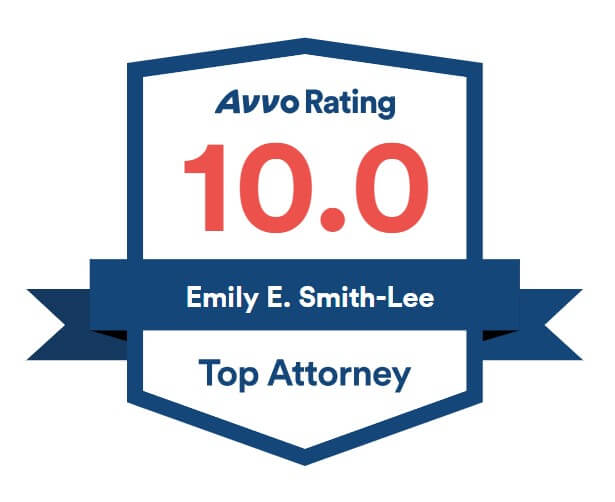Unlocking Mediation: A Comprehensive Guide to Dispute Resolution
Understanding Mediation: A Guide to ResolutionMediation, a widely used form of alternative dispute resolution (ADR), offers a unique approach to conflict resolution. Unlike traditional trials or arbitration, mediation doesn't involve decisions about right or wrong. Instead, it relies on a neutral third party, known as the mediator, to facilitate a resolution between disputing parties.
Mediation opportunities can arise in various contexts, such as contractual agreements, employment disputes, or even court proceedings. This article delves into the essence of mediation, its key distinctions from arbitration, and its basic principles. Distinguishing Mediation from ArbitrationWhile both mediation and arbitration fall under the ADR umbrella, they operate differently. In mediation, a neutral mediator assists parties in reaching voluntary settlements. If an agreement isn't reached, the process can end without binding decisions, allowing parties to revert to litigation if necessary. On the other hand, arbitration entails the selection of an arbitrator who functions like a judge, rendering binding decisions on disputes.
Essential Mediation GuidelinesMediation is characterized by its voluntariness and confidentiality. Parties cannot be compelled into mediation unless stipulated in a contract. The confidentiality of mediation discussions is legally protected, ensuring that information disclosed during the process remains off-limits in court or related proceedings. This confidentiality fosters open communication, aiding the mediator in guiding parties toward resolution.
Participants in MediationFor effective mediation, decision-makers from both sides should be present. In individual cases, this means the plaintiff and defendant. In corporate scenarios, the representative with the authority to approve settlements should attend. In cases involving insurance companies, access to the insurance adjuster is crucial during mediation sessions.
Mediation Process OverviewMediation sessions often follow a structured format. Beginning with a joint session involving all parties, this phase outlines the mediation process, introduces participants, and establishes confidentiality agreements. Subsequently, each side is placed in separate rooms, and the mediator engages in private discussions to assess the case, understand settlement expectations, and obtain authority to convey offers or demands to the other party.
These private sessions allow parties to discuss matters confidentially, ensuring open and candid dialogue. The number of private sessions is flexible, with either party having the ability to terminate the process if a settlement seems unlikely, unless a contract mandates a good faith attempt at resolution. The Role of the MediatorThe mediator doesn't act as a judge, making determinations on case merits. Instead, they facilitate negotiation by helping parties evaluate risks and benefits, discuss factual and legal issues, and assess the strengths and weaknesses of arguments. Mediators maintain a neutral stance throughout the process, ensuring an impartial approach.
|
We're Here to Help.OR
|
Questions About Mediating a Business Dispute?
Our Solutions Roadmap is a quick and easy way to share the details of what you are facing and receive preliminary feedback from a member of our team. Use the button below to get started- it is 100% confidential and 100% free.
Achieving Settlement
Upon reaching an agreement during mediation, participants typically sign a mediation agreement, documenting essential terms while everyone is present. Subsequently, attorneys from both sides may draft a detailed settlement agreement. Capturing agreement terms immediately ensures clarity and minimizes the chance of misunderstandings.
Understanding the Costs of Mediation
Mediation expenses generally range from $500 to $1500 per party when hiring a mediation service. Some courts and organizations offer free mediation services, which can be advantageous. Legal fees, if applicable, vary based on your attorney's billing structure. However, it's essential to weigh these costs against potential litigation expenses to make an informed choice.
Should You Opt for Mediation?
Engaging in mediation typically carries minimal risks. Since it's voluntary and confidential, participating won't adversely affect your case. Instead, it offers the possibility of a mutually acceptable resolution without the prolonged costs and time investment associated with litigation. To determine the ideal timing for mediation and the suitability of contractual mediation clauses, consult with your attorney for tailored advice.
Meet Our Business Attorneys

Emily Smith-Lee is the owner and founder of slnlaw. She is a 1996 graduate of Boston College Law School. She was previously a partner at the Boston office of a large international firm, where she worked for thirteen years with a focus on business litigation. In 2009, she started the firm that since became slnlaw, and has grown it from a solo practice to a five-attorney firm with multiple practice areas. She has been recognized as Massachusetts Superlawyer each year since 2013, and in 2018 earned recognition as one of Massachusetts Lawyers Weekly's Lawyers of the Year. She has written a book on employment law: Rules of the Road, What You Need to Know About Employment Laws in Massachusetts, and helped hundreds of small business owners with contracts, business transactions, employment law advice, business incorporation, and risk management. She has also litigated business disputes in state and federal courts.

Rebecca Rogers: Rebecca is a 2006 graduate of Boston College Law School, and has worked with slnlaw since 2013. She previously worked as an intellectual property litigation attorney for Fish & Richardson in Boston, Massachusetts, and clerked for the Massachusetts Supreme Judicial Court. Rebecca has helped clients with business contracts, employment contracts, and employment law advice.

Jenna Ordway: Jenna is a 2013 graduate of Quinnipiac Law School, and also earned an LLM in Taxation from Boston University in 2015. She has been affiliated with slnlaw since 2011, first as a law clerk and then as an attorney. Jenna has been recognized since 2019 as a "Rising Star" by Massachusetts Superlawyers. Jenna has helped many small business owners with simple and complex business incorporation, contract review, advice and analysis regarding business disputes, employment law advice, and advice about business succession considerations as part of estate planning.

Elijah Bresley: Eli is a 2014 graduate of Seton Hall Law school, and has worked with slnlaw since 2020. He previously worked for a boutique employment law firm outside of Boston, and then for the Labor and Employment department of a large Boston firm. He also spent a year clerking for the judges of the Superior Court in Hartford, Connecticut. Eli has helped our small business clients with employment law advice and defense of employment-related lawsuits in MCAD and state and federal courts.

Sharleen Tinnin: Sharleen is a 2010 graduate of Northeastern University School of Law, and has been with slnlaw since 2023. Prior to joining slnlaw, she worked with King, Tilden, McEttrick & Brink, P.C. on complex civil litigation matters. She previously worked for the United States Department of Justice, and received an "Excellence in Justice" award in 2017. Sharleen has helped clients litigate business disputes in state and federal courts, and advised business owners about succession considerations as part of their estate planning.
How We Can Help
Our experienced team is here to guide you through the mediation process, ensuring you understand your options and have the support you need to achieve a fair resolution for your dispute. Give us a call at (781) 784-2322 or use the button below to schedule a free consultation. We look forward to hearing from you!
|
Emily Smith-Lee Rated by Super Lawyers loading ... |
Jenna Ordway
Rated by Super Lawyers loading ... |


